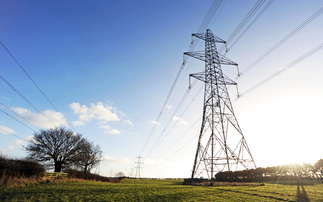
The Oil and Gas Authority's rebranding as the North Sea Transition Authority lays down the gauntlet to the UK's fossil fuel industry - can it really deliver on its green promises?
What's in a name? You have to hope yesterday's rebranding of the Oil and Gas Authority as the North Sea Transition Authority is borne out in its remit and activities, but equally it is hard to escape the fear that this could prove to be yet another example of spin over substance.
Shaun Spiers, chief executive of think tank Green Alliance, spoke for many in the environmental movement when he observed that "if this renaming is a precursor to issuing new North Sea oil and gas licenses, Orwell would be proud".
It does indeed look as if the rebranding will come ahead of a major new oil and gas licensing round, just as it is widely expected that the government will make renewed investment in the North Sea basin a key component of its new Energy Security Strategy (when it eventually sees the light of day).
As Spiers and many other have pointed out, these new licenses will do next to nothing to tackle currently soaring oil and gas prices, given it can take decades for new oil and gas fields to come online and the UK is not a big enough producer to shift global prices. But the government has clearly decided Russia's aggression has underscored the need to bolster domestic energy sources of all types even if it takes decades for new investments to bear fruit, and as such oil and gas developers, as well as renewables and nuclear projects, look set to be among the big winners in its new strategy.
This is not a battle the environmental movement is likely to win in the current climate, even if there remains an acute risk that any newly licensed projects will end up as stranded assets.
Consequently, the question as to whether or not the Oil and Gas Authority is serious about its rebirth as the North Sea Transition Authority has become even more important.
The debate surrounding the future of the oil and gas industry in general, and the North Sea in particular, has become one of stark binaries and intense lobbying, when really it is an issue defined by nuance, uncertainty, and complex questions of pace, scale, and degree.
One side declares all fossil fuel exploration should end immediately to increase the chances of averting a rolling climate crisis, which is self-evidently true. Meanwhile, the other counters that we will need oil and gas during the transition to a net zero emission economy and to minimise price spikes that could derail efforts to decarbonise, which is also true.
Meanwhile, much more interesting questions about how to reduce oil and gas supply and demand in lockstep so as to avoid price volatility and stranded assets, or whether carbon capture and storage really can make continued gas extraction compatible with net zero, are largely ignored, in public at least. The interesting question is not whether we will need oil and gas in the transition, but precisely how much and by when.
If, as has been argued, we will respond to the climate crisis with a mixture of mitigation, adaptation, and suffering, we just don't know the precise mix yet, we will likely get to net zero through a combination of decarbonisation, carbon capture, and stranded assets, but again, we don't know the mix yet (although we can safely guess decarbonisation will very much dominate).
It is against this backdrop that the Oil and Gas Authority's name change could represent a welcome step forward. The explicit reference to the North Sea provides further evidence the government sees no role for onshore fracking, and the clear mandate to manage the transition suggests it will have to wrestle with the crucial question as to how much new oil and gas production is actually needed and whether CCS and hydrogen can really be delivered at scale in a cost effective manner.
The problem is that some of the cynicism greeting this move is well earned. The oil and gas industry has spent the past decade failing to provide nearly enough investment in the CCS and hydrogen technologies that provide the only half-feasible route for its continued existence in a decarbonising world. It is still lobbying against the windfall taxes that could help fund the next phase of the transition. And its various net zero strategies are failing to adequately address questions as to how to square new exploration with net zero emission goals. To date, regulators have not done enough to force operators to come up with answers to these critical questions. The hope is that is about to change.
The reimagined North Sea Transition Authority faces myriad complex challenges, but the overarching one is for it to live up to its new name.
This article first appeared as part of BusinessGreen's Overnight Briefing, which you can sign up for here.
Want to find out more about how the net zero transition will impact your business? You can now sign up to attend the virtual Net Zero Finance Summit, which will take place live and interactive on Tuesday 29 March and will be available on demand for delegates after the event.










